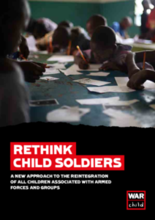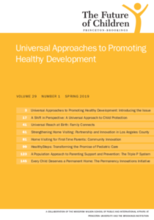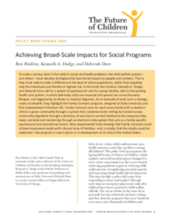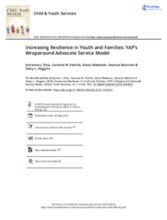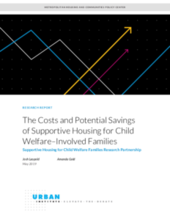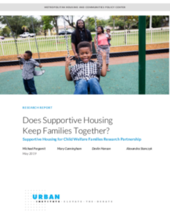This page contains documents and other resources related to children's care in the Americas. Browse resources by region, country, or category.
Displaying 181 - 190 of 566
This report by War Child aims to bring global attention to the challenges related to the reintegration of children associated with armed forces and groups, and promote better policy, practice and funding in the future.
This volume explores universal social programs designed to serve entire communities as they move toward achieving population impact in reducing child maltreatment, strengthening parental capacity, and improving infant health and development.
In this brief, Ron Haskins, Kenneth A. Dodge, and Deborah Daro call for a system of psychosocial care for young families in the US, highlighting the the Family Connects program which aims to reach every family with a newborn child in a given community through a system that combines home visiting by trained nurses; community alignment through a directory of services to connect families to the resources they need; and data and monitoring through an electronic data system that acts as a family-specific psychosocial and educational record.
The current study used a quasi-experimental design and propensity score matching to examine the outcomes for children of families served by the Iowa Department of Human Services Parent Partner program, a peer support program to mentor parents who are currently involved in the US child welfare system.
In this article, a team of practitioners explores the basis, implementation, research base, and future application of Youth Advocate Programs, Inc. (YAP)’s dual-prong service model in building resilience in youth and families in the U.S., providing comprehensive, community-based services as an alternative to institutionalization for youth and young adults with complex needs and challenges.
The present study uses system dynamics modeling to inform decision-making by testing policies for scaling the Family Unification Program (FUP), a U.S. federal initiative connecting inadequately housed families involved in child welfare with long-term rental subsidies to avoid foster placement.
The Global Social Service Workforce Alliance hosted the 6th Annual Social Service Workforce Strengthening Symposium on the topic of using evidence as a catalyst for advocacy efforts to support the social service workforce.
This study evaluated the effectiveness of the US Department of Health and Human Services’ Administration for Children and Families funded Partnerships to Demonstrate the Effectiveness of Supportive Housing for Families in the Child Welfare System, a five-year, $25 million demonstration that provided supportive housing to families in the child welfare system, in five sites. This report summarizes the results of the cost study, which estimates the costs of the housing and services offered in the demonstration and any savings, or additional costs, resulting from the demonstration’s effects on families’ use of homeless programs and child welfare services.
This report provides findings from the Urban Institute's impact analysis of a program that provided supportive housing to families in the child welfare system in the US.
This chapter from Re-Visioning Public Health Approaches for Protecting Children argues that mentoring for children in foster care in the US should be considered as one potential strategy for the prevention of adverse outcomes among this vulnerable population.


